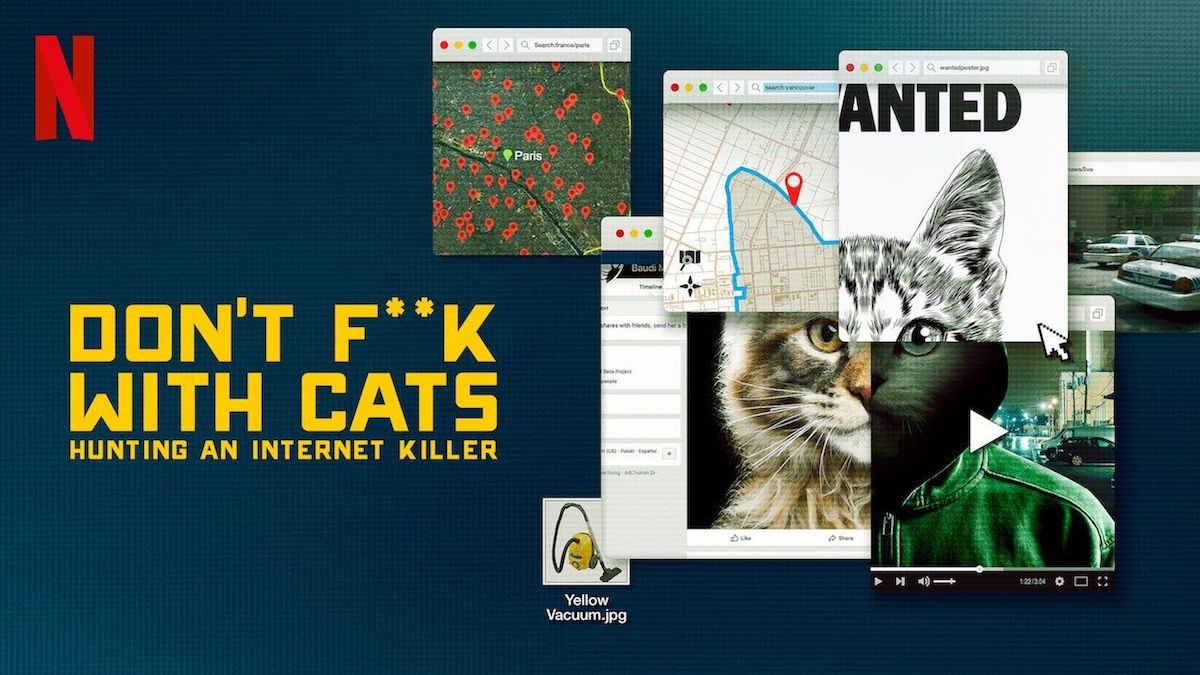When three part documentary Don’t F**k With Cats landed on Netflix in 2019 it became and instant sensation. It was both utterly fascinating and incredibly disturbing and became one of Netflix’s top five watched docs of that year, but also prompted discussions about whether the series itself could be seen as part of the problem.
The series is about Luka Magnotta, a Canadian man who was absolutely desperate to be famous and after his attempts at a career as an actor, a model and a reality TV star were unsuccessful started posting animal cruelty videos online. The series follows the internet sleuths who tracked him from the first terrible kitten videos he posted, up until the point where he actually committed the murder of Chinese student Jun Lin which he filmed and posted.
It’s an incredible story, told as a thriller. But in a series of BAFTA TV Sessions with panels on shows nominated for 2020 BAFTA Television awards the director of Don’t F**k With Cats Mark Lewis and producer Felicity Morris talked about the moral complexities of the show, especially from the perspectives of Deanna Thompson and John Green, the two citizen detectives who form the backbone of the story.
“I think both of them really grappled with the sense that Luka obviously was doing the killing videos and the murder videos because he wanted to be famous,” Morris explains. “A lot of the conversations that Mark and I had with them at the beginning was well, what are we doing giving him a Netflix platform for his story?”
“I think it was integral to gaining access to them that we tackle head-on that issue: are we giving a platform to Luka?” Lewis agrees. “I think in conversations with Deanna and John Green, we arrived at what we felt was a comfortable position which was looking at the complicity of every person who reads a crime story in a newspaper or reads a crime novel. Crime and murder is something that we’re all fascinated by. In a sense, it was part of the story that we’re all, whether it’s film-makers or viewers, complicit in this fascination with true crime.”
It’s clear from the series that Luka was desperate for notoriety, baiting the online detectives with clues, and modelling his horrific crime around one of his favourite movies, Basic Instinct. It would all seem terribly far-fetched were it not true.
“One of the reasons behind why Luka had moved from killing animals to murdering someone online was because he knew there was this audience for murder so suddenly there was a very dark, but extraordinary back story behind the whole film. We decided that we had to tackle that head-on,” Lewis says.
The ending they settle on is what Lewis refers to as the ‘complicity ending’, and he says that this all came from Thompson, who he says is the best interview subject he has ever had.
In the closing moments of the final episode Thompson asks herself, “Were we complicit in Luka’s crimes? Did we feed his narcissism to the point where he had to go forward? Did we feed the monster? Or did we create it?”
Before delivering her closing lines direct to camera:
“And you, watching a whole fucking documentary about Luka Magnotta, are you complicit? Perhaps it’s time we turned off the machine.”
“We couldn’t have got that ending, without her because she really understood at its core what we were doing and what we had to say,” says Lewis. “Thankfully that complicity ending was really of her making.”
